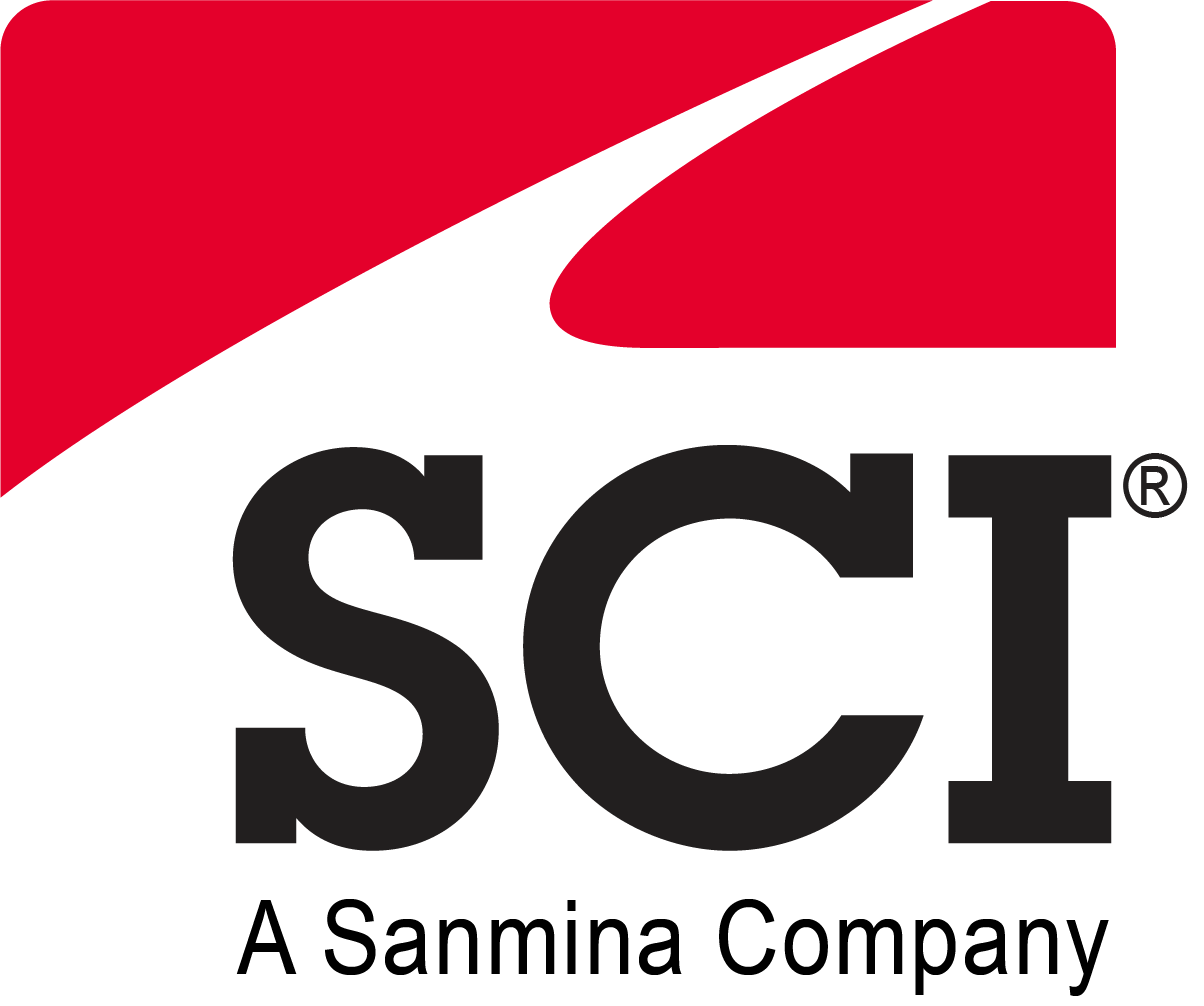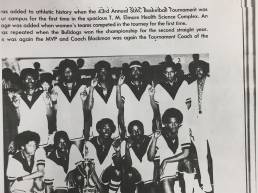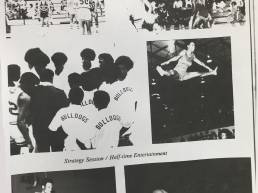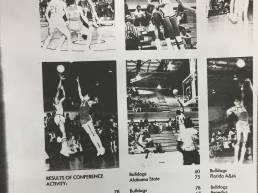Catherine Townsend We Are SCI
Catherine Townsend
SCI Employee Star of the Month for February 2020
Catherine Townsend is SCI’s Employee Star of the Month for February 2020. Catherine is a long-term member of the SCI family, with 37+ years of service to our company. She has been a Solderer for most of her career and currently serves as an Assembly Lead in the ARINC department.
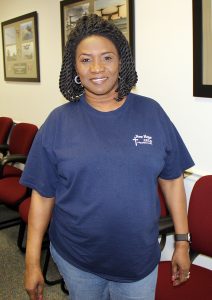
How long have you been with SCI
37 years
What do you like about working here?
The group I work with
What can you tell us about the group you work with?
They are a wonderful hard working group.
What are your hobbies outside of work?
Do things with my grandchildren and family and Church Act.
What is your favorite activity to do with your family?
Go shopping.
What is your favorite TV show?
Power.
How long do you think you could go without using social media? (Be honest!)
All day.
If you could only listen to one song for the rest of your life, what would it be?
“Steady Love” by India Arie.
If you could travel anywhere in the world for vacation, where would you go?
Florida.
Would you rather be completely invisible for one day, or be able to fly for one day?
Invisible for one day.
Patricia Johnson We Are SCI
Patricia Johnson
SCI Employee Star of the Month for January 2020
Patricia Johnson is SCI’s Employee Star of the Month for January 2020. She works as a Materials Expediter and has been with SCI for more than 36 years.
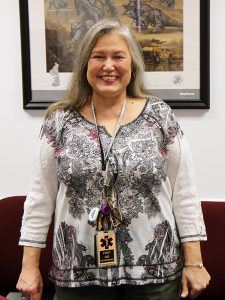
Job Title
Materials Expediter
How long have you been with SCI?
July 5th will be 37 years.
What do you like about working here
I told myself in school that I would never work in a factory… well that was 37 years ago.
My original plans were to have my own small business. My time here started as a job, but ended up being a career. Worked, married, and raised a family. I have had various responsibilities during my journey, and each one has given me the opportunity to learn and grow.
You’ve served in a number of different positions over the years. What were they, and which was your favorite?
Advanced hand soldering/repair; Hand Load Material Handler/Line Lead; Associate Manufacturing Engineer; Documentation Control Administrator (implementation of ISO9000); Manufacturing Maintenance Clerk; Receiving Clerk; Consumables Administrator/Hazmat Responder
My favorite job was as an Associate Engineer because it allowed me to use my immense creativity and design / problem solving skills.
What can you tell us about the group you work with?
They are my extended Family. Each one is uniquely different, but work so well as a complete team. Each love life, family and to have fun (especially love dressing up for Halloween).
At SCI, we often say that we serve those who serve. What personal meaning does that have for you?
We are privileged to have the responsibility of building products that improve the chances of survival for those who serve and protect our freedoms. We are blessed to have employees who served in the US Military and have now transitioned to the SCI Team. Bringing with them vital field experience. Allowing them to improve or create cutting edge products that will improve the survival rates of our troops.
I grew up as a “Coastie” in a military family and married a Navy “SeaBee” — it brings an immense sense of pride. A true leader must have a servant’s heart. A leader must be willing to do what they are expecting others to do….leading by example.
What are your hobbies outside of work?
DYI Projects (Repurposing discarded items into beautiful new things), gardening, fishing/outdoors, bargain hunting.
I love finding people to “pay it forward” to… My favorite is to find young couples or single parents with small children. I look for those who are frazzled and seem to have made it to the end of their rope that day, and I walk up to them and encourage them by letting them know they are doing awesome job, to hang in there, then I bless them with the gift of a lunch date together. It is so rewarding to see the joy return to their faces.
I also like to do occasional crafting classes with seniors during the winter months.
What is your favorite activity to do with your family?
Fishing
What is your favorite TV show?
Oak Island
How long do you think you could go without using social media? (Be honest!)
Forever
If you could only listen to one song for the rest of your life, what would it be?
I’m Dreaming of a White Christmas
If you could travel anywhere in the world for vacation, where would you go?
Cannot just pick on place. I want to experience every continent and culture.
Let’s play “Would You Rather” (please explain your choice!)
Would you rather have to read aloud every word you read or sing everything you say out loud?
Music has a tendency to be remembered by the hearer better than the spoken word. Plus, I would have eye contact vs reading and having to look at the written word I am trying to read.
Would you rather be able to control fire or water as your superpower?
With being able to control water, you would have control over fire. Thus in this case water is more powerful than fire.
Jackie Edwards
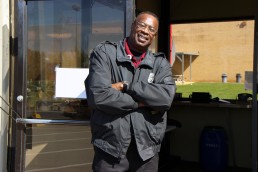
Jackie Edwards
We Are SCI
Unless you’re an employee at SCI, you might not know the name Jackie Edwards. But if you’ve visited the plant anytime over the last 18 years, you’d almost certainly remember him.
It’s no stretch to say that Jackie, who will mark 18 years with SCI this August, leaves an impression on anyone who passes through the guard station. Standing 6-foot-6, this former college basketball star nearly always wears a smile and offers an encouraging word for all.
“I try to keep a good attitude with people,” he says. “I was brought up with the idea that you treat people the way you want to be treated.”
That’s great advice for anyone. But for Jackie, who serves as a Senior Security Officer, those words are more than just an idea. They’re also part of his job.
“I realize not everybody is the same – there are going to be some cloudy days,” he says. “But I’m dealing with the public. I’m the first person they see. So I’ve got to keep myself at the utmost I can be.”
“I was brought up with the idea that you treat people the way you want to be treated.”
From Selma to Semi-Pro
Jackie’s story starts in his hometown of Selma, Alabama, where he stood out as a high school basketball player. With his talents on the hardwood, he earned a scholarship to play at Alabama A&M University.
At A&M, Jackie earned a Bachelor’s Degree in Industrial Arts Education and starred at forward for the Bulldogs from 1972-76. As a senior, he led A&M in scoring and rebounding, and ranked fourth nationally in rebounding.
From there, Jackie caught on with semi-pro basketball teams in Seattle, Washington, and Portland, Oregon. As a member of the pro teams’ “Taxi Squads,” he played against NBA veterans like “Downtown” Freddie Brown, Jack Sikma, “Big” Bill Walton and Bob Love.
While he never “made it” as a professional, Jackie says he is thankful for the opportunities he had.
“There were three of us to a room, and I used to come back to the room complaining – ‘I’m not getting the right chance, think I can beat this guy out,’” Jackie remembers. “But one of the players sat me down and told me, ‘You’re blessed just to have an opportunity to come here, because the school you went to doesn’t get a lot of opportunities to be looked at. You’re here, just pick your head up and do the best you can do.’ I took his advice, and it kept me around for another year.”
Back to Huntsville
Jackie spent two years in both Seattle and Portland before returning to Huntsville. Back in the Rocket City, he joined a semi-pro team called the Marauders that traveled to different cities to play games.
After his playing days were finished, Jackie changed paths and entered law enforcement. He went through the academy at Jacksonville State University and worked three years for the Alabama A&M police department.
Next, Jackie returned to Selma and worked with the Dallas County Sheriff and Vaughan Regional Medical Center. In 2000, Jackie and his wife decided to move back to Huntsville. He joined SCI’s security team in August of that year and has been here ever since.
“I enjoy working with the people surrounding me here, and that’s what has kept me here,” Jackie says. “If I was working at a place where I didn’t enjoy the people, I wouldn’t have stayed.”
Lucky Harbin
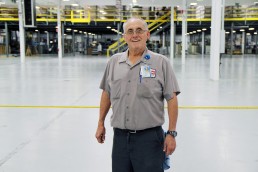
Lucky Harbin
We Are SCI
Much like with many of his stories, James “Lucky” Harbin describes his first day at SCI in sharp detail. And just like any good story, this one comes with something a little unexpected.
The date was June 23, 1986, and Lucky was the newest employee at SCI’s old Plant 3. The plan was to stick around for a year or so, but then the unexpected happened.
“That one year turned into 31 years and I never did go anywhere,” Lucky says while taking a moment away from his daily rounds one Monday morning at SCI’s current location. “I liked the exercise, liked being around people, and all the engineers, then and now, are terrific to be around.”
Most of them would probably return the compliment. Over the past three-plus decades, Lucky has become a familiar face to most everyone at SCI with his positive attitude and tireless work ethic. These days, he serves as Day Lead in the Facilities Department and can often be found telling coworkers, “Have a good day, my friend” or, “Call my cell phone if you need anything.”
And if you start a conversation with him, Lucky might even share some of his best stories – complete with a few of those unexpected details.
Picnics and Westerns
There’s the one about how he met his wife, Linda, who also worked at SCI and only recently retired. The couple met in 1992 at a company picnic, not long after Lucky had moved to the current building from Plant 3. A fellow employee made the introduction, but Lucky never thought he’d have to ask her out three times before he got a date.
“Even back to my high school days, I never asked a female out three times. So I said, ‘Why not?’ and asked her out a third time,” Lucky says, pointing in the direction of the exact cafeteria chair where Linda used to sit. “So I knew her for two years, and we dated for two years, and now we’ve been married for 22 years.”
Then there’s the story of his nickname. Sure, his father was a fan of Westerns, particularly Hopalong Cassidy and a certain sidekick named Lucky. But only close friends might know the other, more unexpected reason behind this Lucky’s moniker.
“I was a month premature and spent about a month in the incubator,” he says. “So I got my name because I was lucky that I lived, and I’ve carried that name ever since.”
“I liked the exercise, liked being around people, and all the engineers, then and now, are terrific to be around.”
‘Life-Long Job’
Lucky might tell you that he’s stuck around SCI all these years because of the “wonderful people” he’s worked with. Or perhaps it’s because walking through his daily routine helped him lose more than a hundred pounds – making him “truthfully half the man I used to be, weight-wise.”
But while all of that is true, people from around SCI say he’s also a great inspiration to everyone he comes into contact with.
“It is a pleasure when I see Lucky in the facility,” says Mike Underwood, SCI President. “He is always friendly and is an extremely conscientious and dedicated employee.”
Don Herrington, Supervisor in the Facilities Department added: “He is known to all for his ceaseless efforts to provide excellent support services with a positive attitude. I mention him to applicants during employment interviews as an example that an employee can have a life-long job with SCI.”
Marlene Stuart
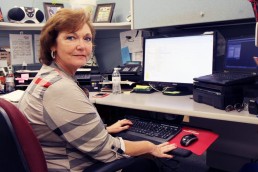
Marlene Stuart
We Are SCI
For Marlene Stuart, working at SCI for 34 years has meant working side-by-side with her family.
Both literally and figuratively.
“I grew up here, and the company has been really good to me,” says Marlene, a Supervisor in SCI Production Control. “This is a family company, really. You’re family by different mothers.”
Except in Marlene’s case, the definition of family runs even deeper than that. Among her 600 or so coworkers at SCI, Marlene has plenty of actual relatives – a daughter, niece, nephew and an aunt who retired a few years back after spending more than four decades with the company.
But then there’s her other family – those people who have made the transition from coworkers to friends to a kind of workplace kin, sharing stories over the years and watching each other’s children grow up, from kindergarten all the way through college.
Together, the two sets of families provide a clear picture of what has kept Marlene with SCI for more than 30 years.
“It’s the people,” she says. “There are some people that just become your family.”
‘An Asset To Our Company’
Marlene’s SCI career began in October of 1983, when she accepted a job as a Wave Solder Operator at SCI’s old Plant 2. Three years later, as her mother was preparing to leave the company, Marlene moved to the back dock in Receiving and stayed there for nine years.
SCI later created another role for her in Expediting, and Marlene eventually climbed the ladder in Production Control from Associate Planner to Senior Planner to Supervisor.
“Marlene has made a big difference in every department she has been a part of,” says Lisa Campbell, Production Control Manager. “She has the ability to talk to people and make every situation a win-win for everybody by just simply listening and giving solid direction on what needs to be done. Marlene is an asset to our company.”
“Everybody’s opinion counts, and you listen to them. That’s the key to being a manager.”
Extended Family
As a supervisor, Marlene has learned that while listening might be simple, it’s an important part of being a manager. It’s also something she’s learned over the years from her own experience with her leaders.
“Everybody’s opinion counts, and you listen to them. That’s the key to being a manager,” she says. “You listen to your employees and you see what drives them and what their needs are.”
Away from SCI, Marlene says she loves to work in her garden and backyard – especially in the summer, her favorite time of year. She also spends time with her large family, which includes five children and (so far) nine grandchildren.
Of course, for someone as welcoming as Marlene, nearly anyone can become an extended family member. Even the new coworkers she hasn’t met yet.
“There are so many new faces, and I want the new to stay,” Marlene says. “I want them to feel accepted here and want to stay and grow here, because there’s growth in this company. I see potential in these kids now. They’re going to be the seniors like me in 40 years, if they stay. And they will make it, just like I did.”
